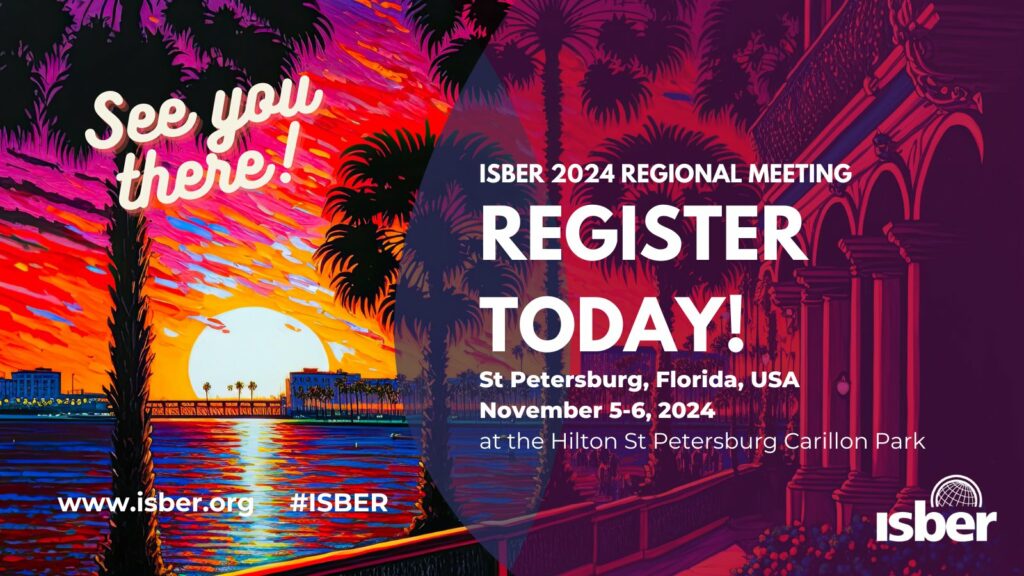In the dynamic world of biobanking, few organizations play as pivotal a role as the International Society for Biological and Environmental Repositories (ISBER). With a mission to advance the expertise and quality of biorepositories and biobanking science worldwide, ISBER stands as one of the leading global forums for the development, management, and operations of repositories. Mike Thurogood, Marketing and Communications Director, Sampled, recently had the privilege of interviewing Dana Cooper, MBA, BKin, CAE, ISBER’s Executive Director, to gain deeper insights into ISBER’s mission, best practices, global collaborations, and the challenges faced by biorepositories today.
Table of Contents
ISBER’s Mission and Global Impact
Mike Thurogood: Can you provide an overview of ISBER’s mission and how it supports the global biobanking community?
Dana Cooper: “ISBER is dedicated to advancing the expertise and quality of biorepositories and biobanking science worldwide. We support the global biobanking community by fostering collaboration, creating education and training opportunities, providing a forum for the dissemination of state-of-the-art policies, processes, and research findings, and offering an international showcase for innovative technologies, products, and services.”
Key Components of ISBER’s Best Practices for Repositories
Mike Thurogood: What are the key components of ISBER’s Best Practices for Repositories, and how do they enhance the quality and reliability of biobanked samples?
Dana Cooper: “The ISBER Best Practices, Fifth Edition, is the definitive global guide for managing and operating biobanks. These practices are either evidence-based or consensus-based and cover the collection, long-term storage, retrieval, and distribution of specimens. They promote the availability of high-quality biological and environmental specimens for future research. The fifth edition has been significantly revised based on user feedback, and it incorporates the Cryo addendum previously published for the fourth edition.”

Promoting Standardization and Innovation through Collaboration
Mike Thurogood: How does ISBER collaborate with other organizations and institutions to promote standardization and innovation in biobanking?
Dana Cooper: “ISBER is a global organization with membership and contributors from around the world. Our annual and regional meetings feature insights from diverse geographical locations. We collaborate with many biobanking consortia globally, which helps us stay aware of and contribute to the global biobanking community. This international collaboration promotes standardization and innovation in biobanking.”
Addressing Challenges in Biorepositories
Mike Thurogood: What are some common challenges faced by biorepositories today, and how do ISBER’s guidelines help address these issues?
Dana Cooper: “As biobanking grows worldwide, challenges include maintaining quality and standards, recognizing the value of biobanking, and securing systemic support for biobanks. ISBER’s activities and products, such as the Best Practices Fifth Edition and our educational programs, promote quality in biorepository operations and standardize specimen management. This helps biobanks address these challenges effectively.”
Conclusion
Our interview with Dana Cooper, MBA, BKin, CAE, Executive Director of ISBER, highlighted ISBER’s crucial role in advancing global biobanking expertise and quality. ISBER’s comprehensive best practices guide ensures the reliability of biobanked samples, supporting scientific research and medical advancements. Through international collaboration, ISBER promotes standardization and innovation, addressing challenges such as maintaining quality standards and securing systemic support. As a proud long-standing Gold ISBER member, we value ISBER’s significant impact on the biobanking landscape and appreciate Dana Cooper’s insights into this evolving field.
If you have any questions about ISBER or are interested in learning more please visit the ISBER website here.

